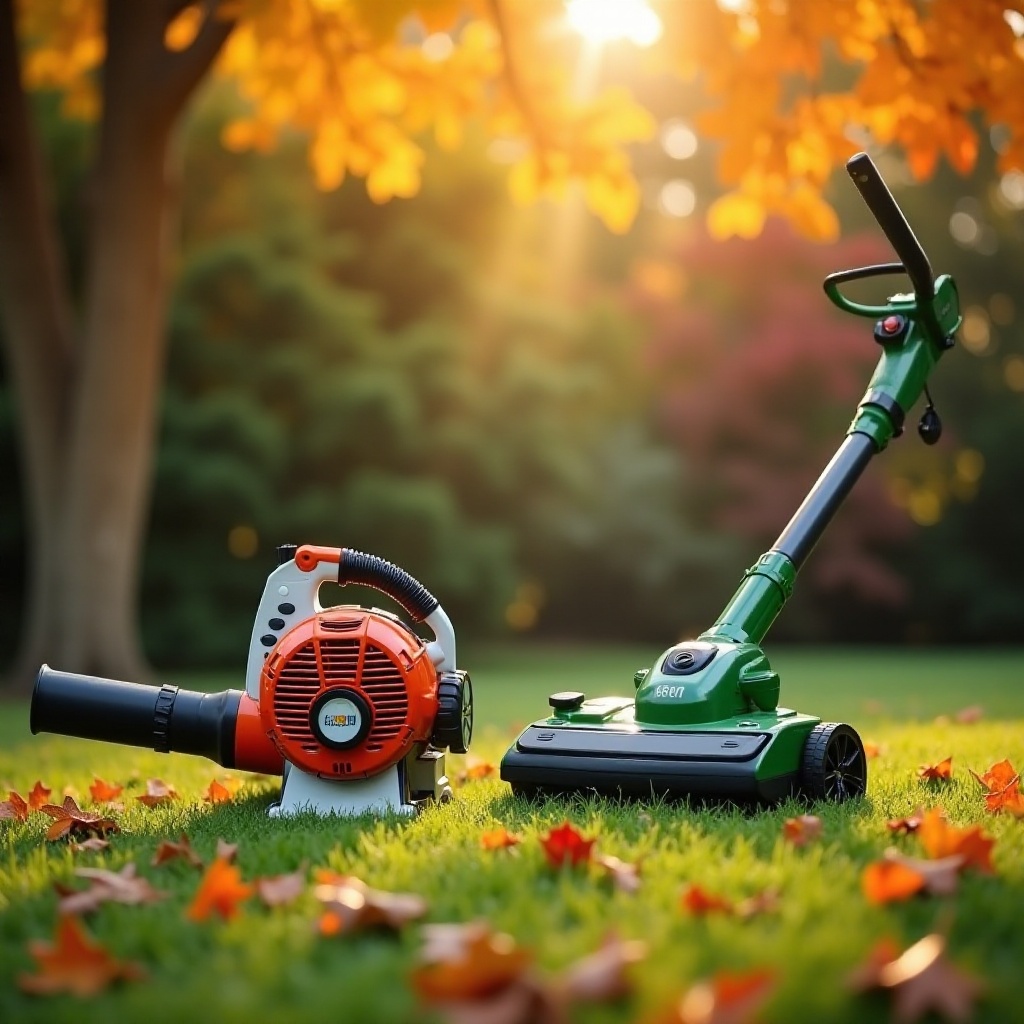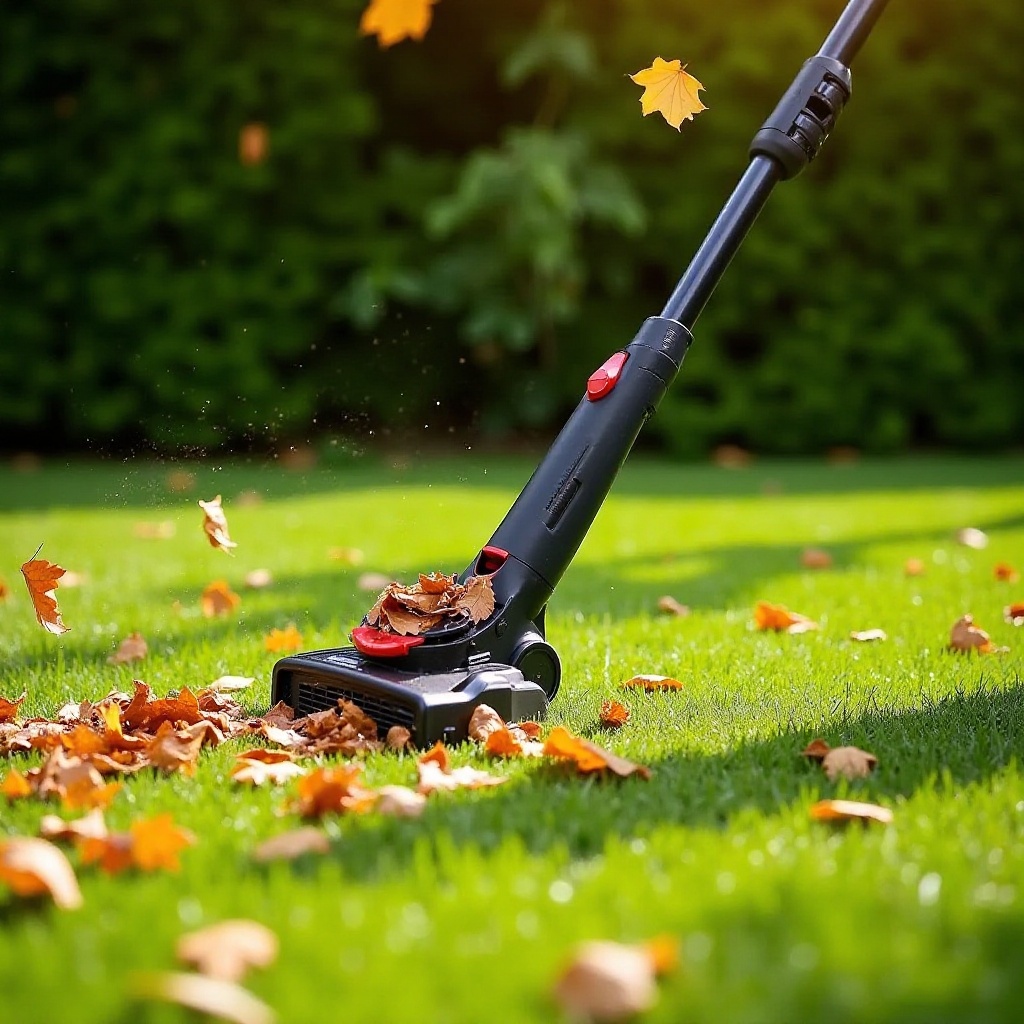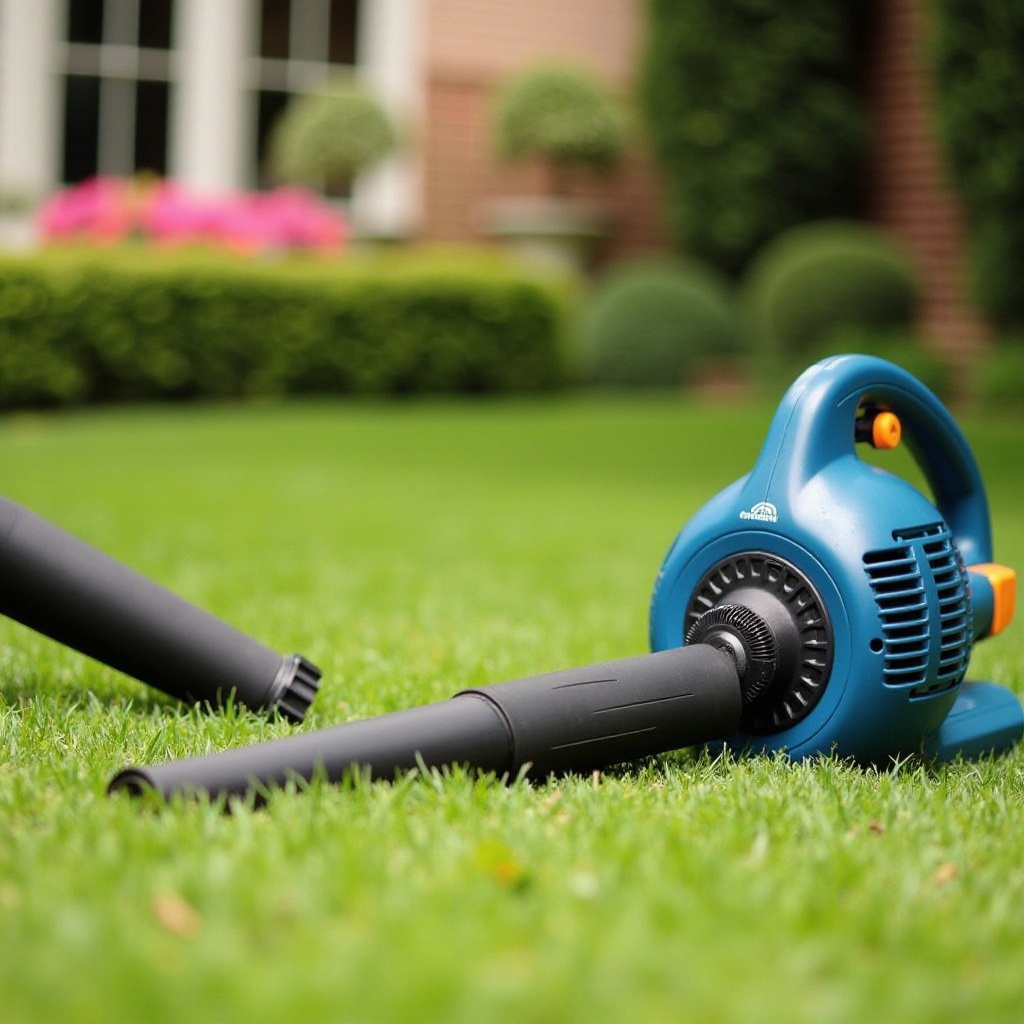Introduction
Maintaining a tidy yard is essential for any homeowner. With the advent of modern tools, the task of clearing leaves and debris has become much more manageable. Two primary tools dominate the market today: leaf blowers and yard vacuums. Both have their advantages and specific use cases, making it crucial to understand their functions to determine which one is best suited for your needs. In this comprehensive guide, we’ll delve into the workings of both tools, compare their key differences, examine costs, and consider their environmental impact.

Understanding Leaf Blowers
Leaf blowers are popular for their efficiency and ease of use. These tools work by generating a powerful stream of air that can move leaves and debris effortlessly to a designated spot, where they can then be collected and disposed of.
Type of Leaf Blowers:
1. Gas-Powered: These are typically more robust and suited for larger yards or heavy-duty tasks. They can be noisy and emit pollutants, which might be a concern for environmentally conscious users.
2. Electric (Corded and Cordless/Battery-Powered): Electric blowers are quieter and more environmentally friendly. Corded models offer consistent power but require being plugged in, which can limit mobility. Cordless models provide greater flexibility and work well for smaller yards but have limited battery life.
Benefits of Leaf Blowers:
– Speed and Efficiency: They can clear large areas quickly.
– Versatility: Many models come with varying speed settings, making them adaptable to different tasks.
– Ease of Use: Typically light and easy to handle, making yard work less strenuous.
Understanding Yard Vacuums
Yard vacuums offer a different approach to clearing leaves and debris. Instead of blowing them away, these tools vacuum up and shred the debris, which can then be used for composting or easily bagged for disposal.
Type of Yard Vacuums:
1. Handheld: Suitable for smaller tasks and tight spaces. These are lightweight and easy to maneuver.
2. Walk-Behind: Ideal for larger areas. They resemble lawnmowers and can handle more substantial amounts of debris.
Benefits of Yard Vacuums:
– Collection and Mulching: They not only clear debris but also mulch it, reducing the volume and making disposal easier.
– Cleanliness: By vacuuming up the debris, they leave the yard cleaner without the need for secondary collection.
– Multifunctionality: Some models can switch between blowing and vacuuming, offering greater versatility.

Key Differences Between Leaf Blowers and Yard Vacuums
Having explored the basics of leaf blowers and yard vacuums, it’s time to highlight their key differences to make an informed decision.
Efficiency and Functionality:
– Leaf Blowers: These are best suited for quickly moving debris to a central location. They are efficient at clearing large areas of loose debris like leaves and small branches.
– Yard Vacuums: These excel in thoroughly collecting and mulching debris, resulting in a cleaner yard. They’re particularly useful in smaller yards or areas where complete debris removal is necessary.
Ease of Use:
– Leaf Blowers: Generally lightweight and easy to use. Their drawbacks include managing where the debris finally collects and dealing with environmental concerns, especially with gas-powered models.
– Yard Vacuums: Slightly more complex due to their additional functionality. They can be heavier and require more maintenance, but the added benefit of debris collection offsets the inconvenience.
Impact on Yard Health:
– Leaf Blowers: Tend to leave debris in piles which need manual collection.
– Yard Vacuums: Aid in maintaining yard health by mulching debris, which can be beneficial for garden beds.
Cost Comparison
Cost is an important factor when choosing between a leaf blower and a yard vacuum.
- Leaf Blowers:
- Basic electric blowers range from $30 to $70.
- Gas-powered models can range from $80 to $200.
-
High-end commercial models can go above $500.
-
Yard Vacuums:
- Handheld models start around $70.
- Walk-behind models can range from $100 to $400.
- Premium models, especially those with multifunctional capabilities, can exceed $600.
While initial costs can provide a clear comparison, consider long-term maintenance and potential energy costs associated with each tool.
Environmental Impact
The environmental impact of yard equipment should not be overlooked.
- Leaf Blowers: Gas-powered models contribute to air and noise pollution. Electric models are a better choice for the environment but require power which can indirectly affect the carbon footprint.
- Yard Vacuums: Generally, electric models available cause less air and noise pollution. Additionally, the mulching aspect reduces waste volume.
Conclusion
Both leaf blowers and yard vacuums serve essential roles in maintaining a clean and presentable yard. Your choice hinges on understanding your specific needs, the size of your yard, and environmental considerations. A leaf blower may be perfect for speed and efficiency in larger areas, while a yard vacuum might be the best choice for smaller yards where tidiness and mulching are priorities.

FAQs
Which is better for large yards, a leaf blower or a vacuum?
For larger yards, a leaf blower generally outperforms a yard vacuum due to its speed and efficiency in moving large amounts of debris quickly.
Are there eco-friendly options for leaf blowers or vacuums?
Yes, both leaf blowers and yard vacuums have eco-friendly models. Electric and battery-powered versions offer quieter operation with reduced carbon emissions.
How do I maintain my leaf blower or yard vacuum to ensure its longevity?
Maintenance entails regular cleaning and checking all parts for wear and tear. For gas-powered tools, ensure timely oil changes and spark plug replacements. Keep electric tools dry and store them in a safe, secure location.
By taking the time to consider these differences and options, homeowners can make an informed decision that best suits their yard’s needs and their environmental preferences.
Frequently Asked Questions
Which is better for large yards, a leaf blower or a vacuum?
For larger yards, a leaf blower generally outperforms a yard vacuum due to its speed and efficiency in moving large amounts of debris quickly.
Are there eco-friendly options for leaf blowers or vacuums?
Yes, both leaf blowers and yard vacuums have eco-friendly models. Electric and battery-powered versions offer quieter operation with reduced carbon emissions.
How do I maintain my leaf blower or yard vacuum to ensure its longevity?
Maintenance entails regular cleaning and checking all parts for wear and tear. For gas-powered tools, ensure timely oil changes and spark plug replacements. Keep electric tools dry and store them in a safe, secure location.

